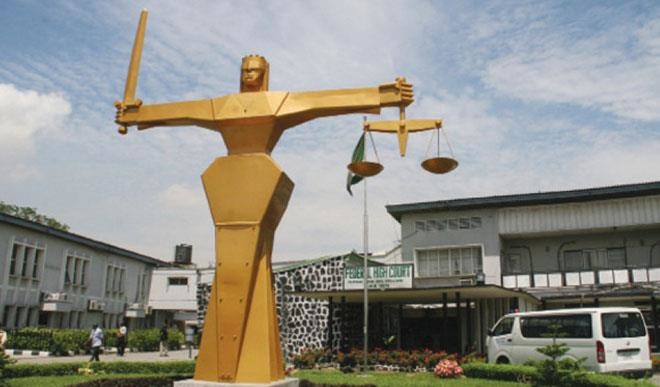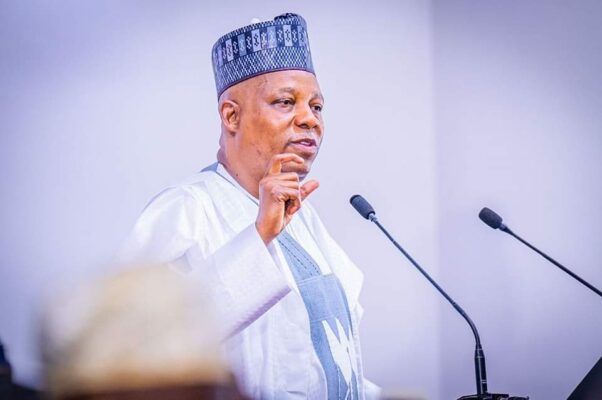News
Good use of Tax Revenues will enhance Tax morale and compliance – FIRS
When governments deploy tax revenues for the common good of the citizens, there is a concomitant increase in tax compliance by citizens who see the direct benefit of the taxes they pay.
This was the position held by the Executive Chairman of the Federal Inland Revenue Service (FIRS), Muhammad Nami during his opening remarks at the launch of the Public Finance Database by the Nigeria Governors’ Forum at the Wells Carlton Hotel, in Abuja, on Tuesday, last week.
Mr. Nami argued that the low compliance tax rate in most developing countries was as a result of the failure of the social contract between the taxpayers and the government, noting that those in political leadership in the country had a duty to promote a tax-paying culture by relating projects and infrastructural developments executed by them to taxes paid by taxpayers.
“Taxpayers need to see what has been done with their money to be encouraged to continue to pay their obligations under the Social Contract they have with the government.
“I am delighted that one of the sessions focuses on the tax-for-service programmes as they impact tax revenues. This issue is dear to us as tax administrators as there is a nexus between the effective utilization of tax revenue and tax compliance,” he stated.
“The low level of tax compliance in developing countries can be attributed to the failure of the social contract between the taxpayers and the government. It is expected that if the citizens are committed to paying taxes, the government should be committed to using the taxes for the common good of all citizens.”
The FIRS boss further argued that projects funded by taxpayers’ moneys should be reported as such and not personalized so that citizens would begin to relate these projects as the proceeds of their taxes.
“Those in political leadership should promote the tax-paying culture by relating projects and infrastructural developments executed by them to tax.
“The government at all levels are doing a lot with taxpayers’ money but citizens do not easily appreciate these facts because of the way and manner the projects are reported.
“There is the need to de-emphasize and de-personalize projects so that the citizens will begin to relate all the ongoing laudable projects in the states to tax revenue. This singular act to a great extent will increase the tax morale and enhance compliance.”
Mr. Muhammad Nami, an advocate for a harmonized tax system as a cure for tax revenue leakages used the platform to call for the country to make a bold paradigm shift by harmonizing the country’s tax system to optimize tax revenue collection.
“Recently, there has been a clamour for a holistic review of our tax system. Its proponents, including myself argue that if Nigeria must achieve its tax revenue potentials as the fulcrum of economic development, a harmonisation of our tax system must be undertaken.
“Tax harmonisation for enhanced revenue generation, which was the theme of the 2nd National Tax Dialogue was carefully chosen to reiterate the need for us as a nation to rethink the current tax system being operated.
“There was a consensus at the dialogue that Nigeria needs a transition to a unified tax administration as practised globally by most of the efficient and effective tax jurisdictions that have achieved optimum tax revenue collection.
“Certainly, there is no gainsaying that if Nigeria must be less dependent on external borrowing and buffer from the volatility and dwindling oil revenue, there should be a paradigm shift. Beyond politics and sentiment, the country should be willing to make those bold and hard but beneficial tax reforms and there is no better time than now, if we must avert the looming debt crisis.
The gains from a harmonised tax system far outweigh the fears expressed in some quarters, if dispassionately analysed.”
News
Yahaya Bello: Court orders EFCC boss, Olukoyede to appear over alleged contempt

A Kogi High Court in Lokoja on Friday ordered the Chairman of the EFCC, Mr Ola Olukoyede, to appear before it on May 13 to show why he should not be committed for allegedly disobeying its order.
Justice I.A. Jamil of High Court IV gave the order while ruling in Suit No: HCL/68M/2024 and Motion No: HCL/190M/2024, brought before him by ex-Gov. Yahaya Bello of Kogi in Lokoja.
“The said act was carried out by the Respondent (EFCC) in violation of the order, which was valid and subsisting when they carried out the act.
“That same act of the respondent amounts to contempt, ” the judge said.
The News Agency of Nigeria (NAN) reports that the EFCC boss is facing a contempt charge for allegedly carrying out “some acts upon which they (the EFCC) have been restrained” by the court on Feb. 9, pending the determination of the substantive originating motion.
EFCC operatives had on April 17 laid siege on the residence of the former governor, Alhaji Yahaya Bello, in a bid to arrest him, in spite a court order restraining them from taking such action, pending the determination of the originating motion.
Justice Jamil’s order was based on a motion ex-parte filed by Yahaya Bello through his lawyer, M.S. Yusuf.
Bello prayed the court for an order to issue and serve the respondent (EFCC Chairman) with Form 49 Notice to show cause why Order of Committal should not be made on Olukoyede.
“The Judge, after listening to the arguments of the applicant’s counsel, the submission and exhibits attached in the written address, granted Bello’s prayers and ordered Olukoyede to be summoned to appear before the court to answer the contempt charge.
“The applicant’s application before me is to the effect that the respondent has carried out some acts upon which they have been restrained by this court on Feb. 9, pending the determination of the substantive motion on notice before this court.
“That the said act was carried out by the respondent in violation of the order which was valid and subsisting when they carried out those acts. That same act of the respondent amounts to act of contempt.
“It’s against the above facts that this Court hereby grants the prayers sought in line with the principle of “Audi Ultra Patem” (listen to the other side).
“This matter is adjourned to May 13 for the respondent’s chairman to appear before this court in answer to form 49 ordered to be served on him,” the Judge said.
News
Tinubu appoints heads of NESREA, NDRBDA


President Bola Tinubu has approved the appointment of Dr Innocent Barikor as the Director-General of the National Environmental Standards and Regulation Enforcement Agency (NESREA).
Chief Ajuri Ngelale, Special Adviser to the President on Media and Publicity, disclosed this in a statement on Friday in Abuja.
The President also approved the appointment of Prince Ebitimi Amgbare as the Managing Director/CEO of the Niger Delta River Basin Development Authority (NDRBDA).
Barikor is an academic, politician and a member of the Rivers State House of Assembly from 2011 to 2015, while Prince Amgbare is a retired naval officer and former commissioner in Bayelsa.
He said that the President expected that the new heads of these important agencies to discharge their duties with utmost fidelity to the nation.
Ngelale also stated that the President called on the new appointees to adhere to the highest standards of professionalism, accountability, and excellent service to the people of Nigeria.
News
NCP approves recommendation to reposition BOA


By Matthew Denis
The National Council on Privatisation (NCP) has given its nod to the recommendations aimed at repositioning the Bank of Industry (BOA) to ensure food security for Nigerians.
Chaired by the Vice President, Sen. Kashim Shettima, the NCP approved the recommendations from the committee on BOA during its second meeting of 2024 held on Wednesday, April 24, 2024, at the Presidential Villa Abuja.
Speaking during the meeting, the Vice President emphasized the importance of optimizing BOA as part of the administration’s agenda to provide food security for the nation. He urged the committee to engage professionals with integrity to manage the process effectively.
Presenting the committee’s report, the Minister of Finance and Coordinating Minister of the Economy, Mr. Wale Edun, who is also the Vice-chairman of the NCP, highlighted the decision to reposition BOA for efficiency and effectiveness. He expressed confidence that the recommendations would guide the Council in revitalizing the Bank of Agriculture and positioning it globally.
One of the Key recommendations includes upgrading the Bank’s ICT infrastructure to automate processes and ensure accountability.
Recall that in 2023, an 8-member inter-ministerial team was set up by the NCP to review the state of affairs at BOA, given its critical role in agriculture and the administration’s commitment to food security. Additionally, in 2016, the NCP approved collaboration between the Bureau of Public Enterprises and the Federal Ministry of Agriculture and Rural Development, along with the Federal Ministry of Finance, to restructure and recapitalize BOA.
Established in 1972, BOA, formerly known as Nigeria Agricultural Cooperative and Rural Development Bank, is owned by the Federal Government of Nigeria (FGN), with the Ministry of Finance Incorporated (MOFI) holding 60% and the Central Bank of Nigeria (CBN) holding 40%.
The Bank is supervised by the Federal Ministry of Agriculture and Food Security (FMAFS).
BOA’s authorized share capital was increased in 2022 from N50 billion to N500 billion to facilitate its repositioning.
The committee, comprising the Minister of Finance & Coordinating Minister of the Economy as Chairman, Minister of Agriculture and Food Security, Governor of CBN, Ministry of Finance Incorporated (MOFI), Mr. Mohammed Mustapha Bintube, Chairman of the Technical Committee of the NCP, Chairman of the Legal Committee of NCP, and Director General of the Bureau of Public Enterprises (BPE) as the secretary, worked diligently to arrive at these recommendations.
In another development, the NCP also noted a proposal for the establishment of an independent system operator from the Transmission Company of Nigeria (TCN) to enhance efficiency in the nation’s power sector.
-
Finance3 months ago
Court orders Sen. Victor Umeh to repay N136m bank debt to AMCON
-



 Abuja Update2 months ago
Abuja Update2 months agoUNDP, FG partnership needed to achieve inclusion, equity- Minister
-
Abuja Update1 month ago
Banks drive stock market performance with N147bn gain
-



 Infotech4 weeks ago
Infotech4 weeks agoWorld Backup Day: NITDA urges Nigerians to ensure backup of data
-



 Health1 week ago
Health1 week agoCapacity training will reduce migration of health workers- NPHCDA
-
capital market2 years ago
Rt.briscoe, FBNH, Others halts negative performance of stock market
-



 Health3 weeks ago
Health3 weeks agoImmunisation: FG, GAVI seek synergy with Sokoto Govt.
-
Infotech2 weeks ago
Forex for Beginners: Unveiling the currency exchange and how to trade it




